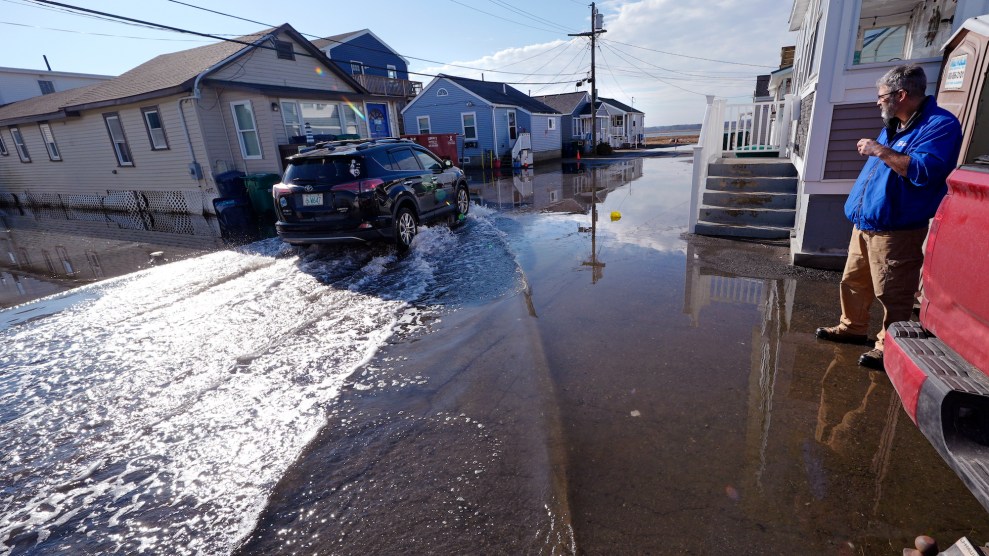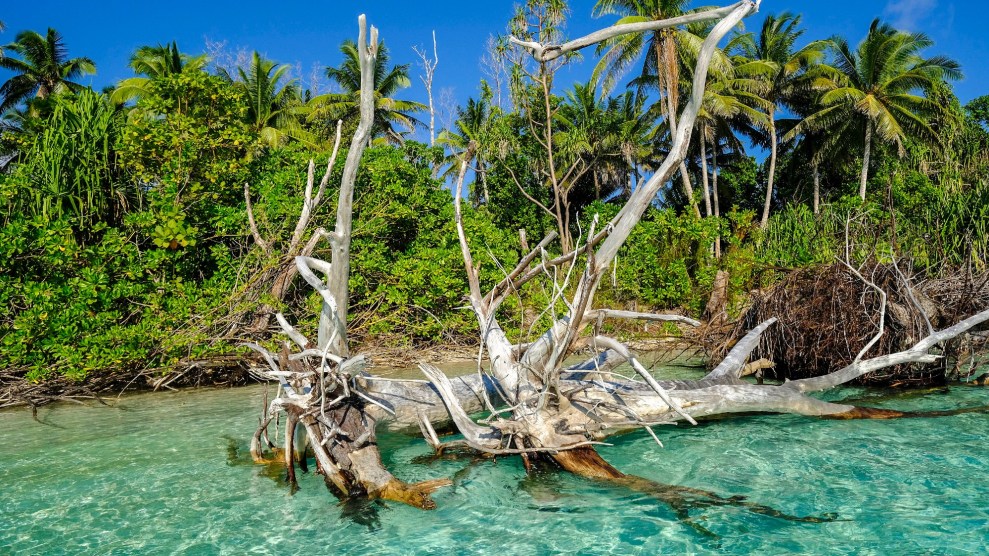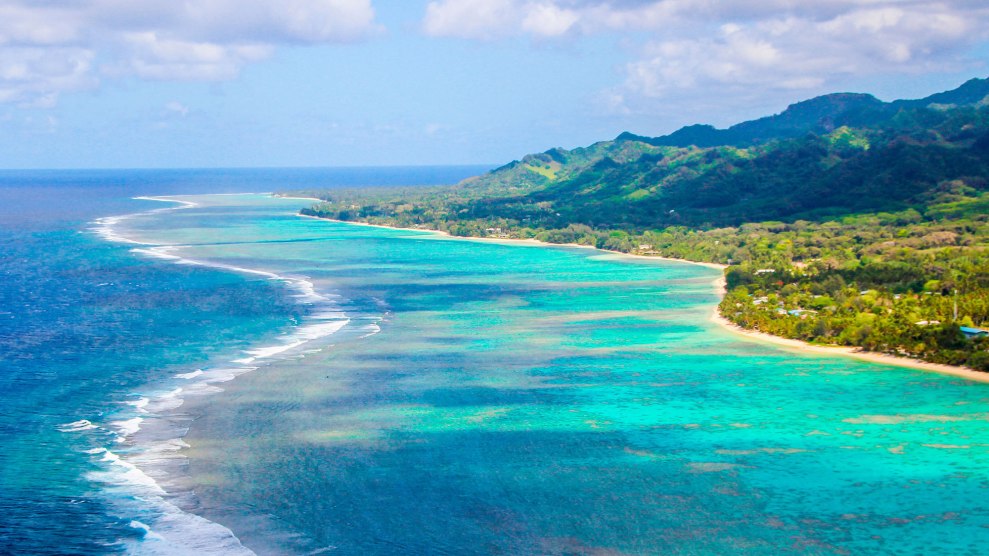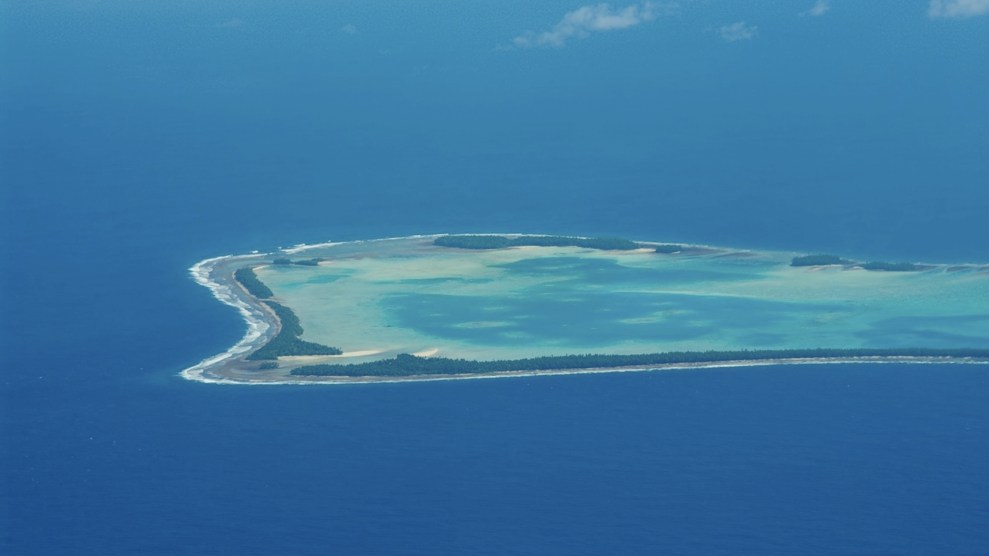
Leaders from island nations arrive for a hearing at the International Tribunal for the Law of the Seas in 2023 in Hamburg, GermanyGregor Fischer/AFP/Getty/Grist
This story was originally published by Grist and is reproduced here as part of the Climate Desk collaboration.
Island nations in the Pacific, Caribbean, and West Indies won a major international legal victory this week that puts more pressure on large governments like the European Union and China to curb their carbon emissions.
On Tuesday, the International Tribunal for the Law of the Sea, or ITLOS, in Hamburg, Germany, unanimously ruled that state parties to the United Nations Convention on the Law of the Sea have an obligation to reduce greenhouse gas emissions. The 169 parties to the treaty include several of the world’s top emitters: China, India, the European Union, and Russia. The United States, also a big polluter, is not a party to the convention.
The tribunal said in its advisory opinion that greenhouse gases count as marine pollution and that state parties to the convention must “take all necessary measures to prevent, reduce, and control marine pollution.”
“It’s a testament to the persistent courage and leadership of small island states that have really been at the forefront of the struggle for climate justice.”
“The ITLOS opinion will inform our future legal and diplomatic work in putting an end to inaction that has brought us to the brink of an irreversible disaster,” said Gaston Browne, prime minister of Antigua and Barbuda, according to Reuters.
Nikki Reisch from the Center for International Environmental Law, which supported the island nations’ case, said the advisory opinion lays the foundation to hold big polluters accountable by clarifying their obligations under international law. Reisch said this is the first time an international court has commented on the intersection of oceans and climate change.
“It’s a landmark decision in that it adds great weight to the growing body of case law and legal interpretations underscoring states’ legal duties to urgently and drastically reduce greenhouse gas emissions to protect the environment and human rights,” she said. “It’s a testament to the persistent courage and leadership of small island states that have really been at the forefront of the struggle for climate justice and accountability and the forefront of legal developments.”
In 2022, island nations including Palau and Vanuatu first brought the case before the tribunal. They wanted to know what the obligations of state parties are “to prevent, reduce, and control pollution of the marine environment in relation to the deleterious effects that result or are likely to result from climate change.”
The island countries have been dealing with storms, heavy rainfall, coral bleaching, and other negative effects of climate change despite contributing relatively little carbon emissions. On islands like Vanuatu, the climate effects particularly harm Indigenous Pacific Islanders, some of whom are already facing dislocation from their ancestral villages.
Reisch said the sweeping opinion is particularly significant because it makes clear that complying with the Paris Agreement, the 2015 international treaty on climate change, isn’t enough.
The opinion said countries should also “take all measures necessary” to ensure their carbon emissions don’t damage other states or their environments.
State parties to the convention also have an obligation to support developing states with climate adaptation, especially those particularly vulnerable to climate change impacts. That includes giving them “preferential treatment in funding, technical assistance, and pertinent specialized services from international organizations,” the tribunal wrote.
The tribunal found state parties also have the legal obligation to monitor greenhouse gas emissions; to report on their observations and analyses; and to protect oceans from acidification. States may even need to restore marine habitats if they’ve been degraded, the tribunal concluded.
Sarah Cooley from the Ocean Conservancy, who gave expert testimony in the case, praised the tribunal’s embrace of climate science.
“Today’s judgment from [International Tribunal for the Law of the Sea] is a massive victory for our ocean communities impacted by climate change, and science in general,” she said.
















